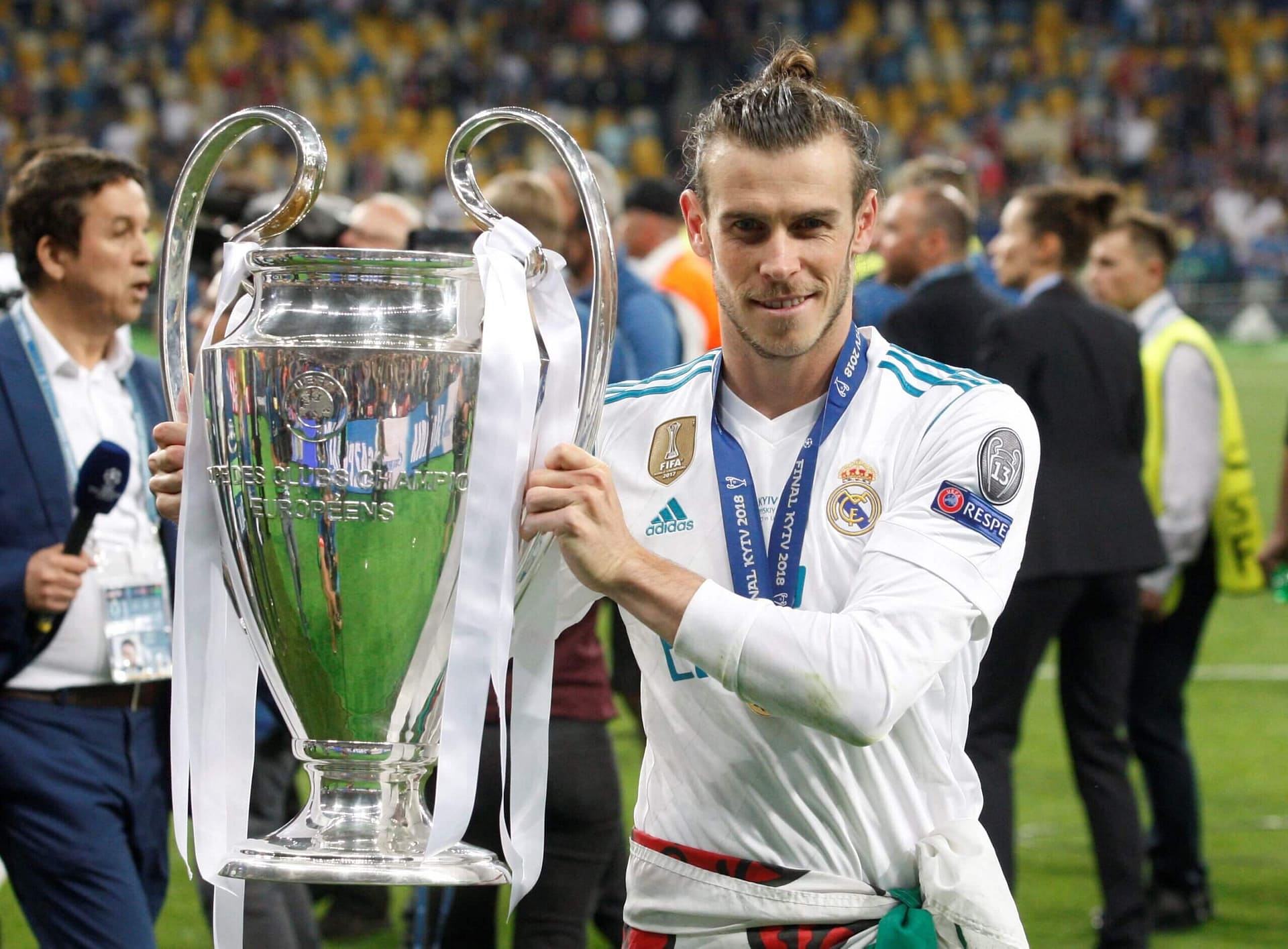Real Madrid’s long-lasting supremacy in European football is demonstrated by their remarkable history in the UEFA Champions League.
Los Blancos will play Borussia Dortmund in the final at Wembley, and they are on the verge of winning their 15th European Cup, which highlights their extraordinary success in the tournament.
Here, we examine Real Madrid’s Champions League triumphs from 2000 onward, rating each according to the situation, the players’ contributions, and the overall impact.
7. Real Madrid 1999/2000
Even though Real Madrid was not yet in the Galacticos era, their 1999–2000 team had a lot of skill. The team’s fortunes drastically changed when Vicente Del Bosque succeeded John Toshack during the season.
With Steve McManaman’s incredible volley leading the way, Madrid trounced Valencia 3-0 in the Champions League final, showcasing the team’s untapped potential.
Their domestic campaign, however, was less successful as they finished third in La Liga, behind Real Zaragoza and Valencia.
6. Real Madrid 2017/18
Even by the high standards of Real Madrid, the 2017–18 season was unusual. Madrid was outstanding in Europe even though they came in third in La Liga, a substantial 17 points behind champions Barcelona.
With the acquisitions of Dani Ceballos and Theo Hernandez, the team took a cautious approach in the summer transfer window, spending little overall and emphasizing youth.
Their Champions League run ended in a historic triumph, demonstrating their ability to perform on the biggest platform despite home defeats.
An unforgettable moment from the final against Liverpool is still Gareth Bale’s incredible overhead kick.
5. Real Madrid 2001/02
The 2001–02 season for Real Madrid was a story of both European dominance and homegrown failure. Though Madrid ended up third in La Liga, nine points behind Valencia, their Champions League run was incredible.
After signing for a record-breaking amount, Zidane made his debut at Hampden Park with a magnificent volley against Bayer Leverkusen.
With this win, Madrid’s European strength was duly concluded in a season that saw them defeat Bayern Munich and Barcelona in the final stages.
4. Real Madrid 2021/22
Real Madrid not only won La Liga in the 2021–2022 season, but they also retook Europe. Madrid took advantage of Barcelona’s shock of losing Lionel Messi, winning La Liga with 86 points.
Karim Benzema and Vinicius Junior stole the show in the Champions League final, with Benzema scoring 44 goals, his best-ever season.
Vinicius’s game-winning goal against Liverpool cemented his status as a superstar. This season demonstrated Madrid’s capacity to bounce back and prosper without Ronaldo.
3. Real Madrid 2013/14
Real Madrid’s 12-year Champions League drought came to an end in the 2013–14 campaign. Despite finishing third in La Liga, Madrid was a potent attacking team under Carlo Ancelotti, scoring 104 goals.
Their brilliant and resilient European campaign came to an exciting 4-1 extra-time win over Atletico Madrid in the championship game.
Gareth Bale made his debut this season as well, and he played a crucial role throughout, scoring a memorable goal against Barcelona in the Copa del Rey final.
2. Real Madrid 2015/16
With Zidane taking over in the middle of the season, the 2015–16 campaign saw a sea change. Madrid had shown promise but had not been consistent under Rafa Benitez.
After Zidane joined the team, they went on a 12-game winning streak in La Liga and came just short of losing to Barcelona for the championship.
Madrid defeated Manchester City in the semifinals of the Champions League and defeated Atletico Madrid in the championship game by a penalty shootout. The trio from BBC (Bale, Benzema, and Ronaldo) was impressive with their combined skill.
1. Real Madrid 2016/17
The 2016–17 campaign was the apex of Real Madrid’s 21st-century Champions League triumphs. Madrid won La Liga and the Champions League under Zidane’s full direction, losing only three games in the entire campaign.
With 42 goals, Ronaldo was at his unstoppable best; Alvaro Morata, who had re-signed from Juventus, added 20 goals, which was vital depth.
Madrid performed a masterful job in the Champions League final, crushing Juventus 4-1 with two goals from Ronaldo.
Madrid’s supremacy in Europe was exemplified by this season, which highlighted both their attacking ability and tactical genius.
Final Thought
One of the best picked up moment by 09sports team was the victory of Real Madrid in 2016 UEFA Champions League final against Atlético Madrid. This final was particularly memorable for several reasons.
First, it highlighted the fierce rivalry between the two Madrid teams, which raised the drama and excitement level during the game.
Real Madrid defeated Atlético Madrid in extra time during their 2014 Champions League final match. Therefore, Atlético felt that this rematch was an opportunity for redemption and retribution.
Second, the 2016 championship game was a hotly contested affair that resulted in an overtime 1-1 stalemate.
Antoine Griezmann gave Atlético the lead in the first half of the game, but Sergio Ramos, Real Madrid’s captain, tied the score later on to send the game into extra time.
Thirdly, a penalty shootout was used to settle the game, which is usually a dramatic and tense method to end a game of this magnitude.
Cristiano Ronaldo scored the game-winning penalty as Real Madrid prevailed 5-3 in penalties.
Finally, Real Madrid’s triumph extended their record as the most successful club in the competition’s history and earned their 11th UEFA Champions League win.
Additionally, it was their second Champions League victory under Zinedine Zidane’s direction, who had only joined the team halfway through the campaign.
This Article was written by Anmol, author @09sports.com
- Roma Come Out on Top in Seven-Goal Thriller with Milan: Chris Smalling’s Reaction
- Katia Lindor Proudly Celebrates Francisco Lindor’s Stellar Night at Citi Field
- “Illegal screens they set for Luka” Timberwolves Coach Criticizes Mavericks’ Screens Ahead of Pivotal Game 5
- Get to know all about ICC’s 60-Second Stop Clock Rule in Detail: A Game Changer for T20 World Cup 2024
- Caitlin Clark’s Physical and Mental Challenge in Her WNBA Rookie Season
